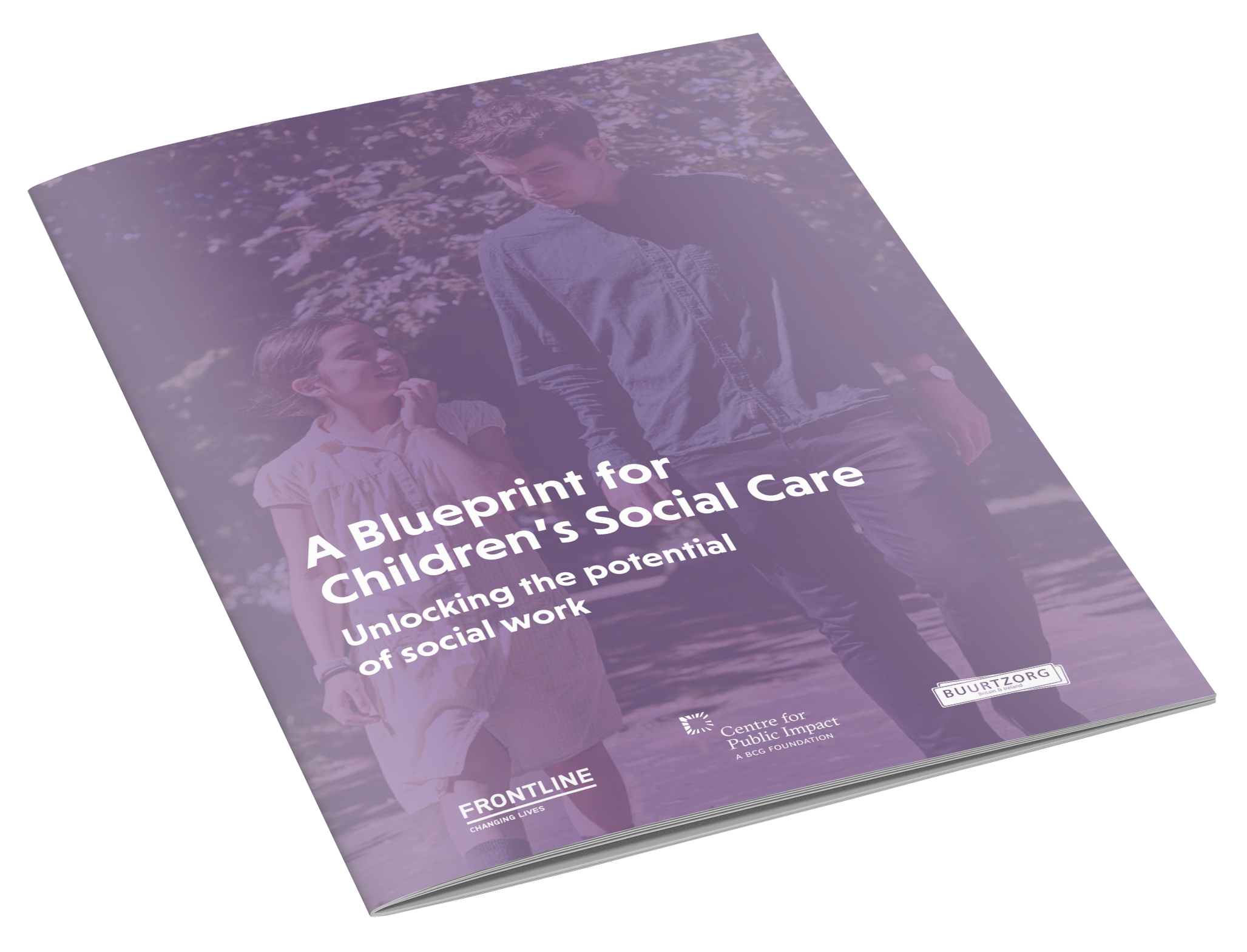
Doing change differently: unlocking the potential of children's social care


Putting relationships first by empowering social workers and prioritising the needs of children and families
The challenge for children's social care in the UK

Social workers play a crucial role for many children in laying the foundations for a better future. The quality of the relationships that social workers build and their skill in navigating these relationships can really make a difference in children's and families' lives. Department for Education research evidences this, and it is also experienced firsthand by social workers across the country. However, too many things stop social workers from doing their best work.
Research found that social workers only spend ~20% of their time with children and families, while ~80% is spent on paperwork and navigating bureaucracy (BASW, 2020)
77% of practitioners felt they could not help people as much as they wanted to, with 56% reporting that a focus on targets rather than resolving issues for people was a cause of job-related stress (Social Work England)
The most cited reason for leaving the social work profession was local authority culture, while 28% cited the amount of paperwork and 20% reported that it was because they could not make the best use of their skills and experience (Department for Education’s longitudinal study)
In response, local authorities are trying new ways to deliver social care services better, and many have pioneered innovative approaches. But there is consensus that this is not enough.
The broader social work system needs to change so that social workers can do their best work with children and families, spending time with them building relationships.
Without this, they will never be able to positively affect outcomes to the best of their ability, and we will continue to lose good social workers who cannot do the job they came into the profession to do.
A new vision for children's social care in the UK
The Centre for Public Impact (CPI) has been exploring a new model for public services. One where power is shared, relationships are put first, and continuous learning is valued.

Inspired by these ideas – and after seeing Buurtzorg in action in the summer of 2019 – a group of children’s social workers and system leaders came together with CPI and started asking questions. How might we apply this relationship-first approach to children’s social care in England? What would a local authority look like if it were to change its structures to better enable and empower social workers to support children and families?
CPI, Frontline and Buurtzorg UK and Ireland teamed up to explore the answers to these questions. Working with over 80 professionals from the social work sector, we developed a different approach to delivering children’s social care, that prioritises relationships and time spent with children and families.
We found that by doing so, local authorities could see the following benefits:
Five key benefits for local authorities
More consistent social care allowing social workers to develop stronger relationships with families.
Greater time with children and families, increasing from 16% to 25% of social worker time.
Reduce average social worker caseload by 21% from 15.5 cases to 12.2 cases.
Increase time spent in team meetings/supervision by 46%.
Increase average years of experience of case-holding social workers by 21%.
Supporting local authorities and social workers to make change
To support change in children’s social care, we have formed a long-term partnership with Frontline and Crescendo; a social worker-led team dedicated to reimagining the social care system.
Together, we launched the Small Changes inspiration programme, which enables practitioners to make the small changes that can make a big difference to the amount of time they spend with children and families.
Small changes occupy the space between making no change and complete system change. They are experiments, based on ideas from the ground up, on how to do things differently. They are changes within the local authority's scope of influence that could change now and do not require any changes to national regulation or legislation.


The impact on local authorities
We are building on the success of the Small Changes programme. In partnership with Frontline and Crescendo, we are supporting three local authorities - Tower Hamlets, Wandsworth, and Warrington - to make the systemic change needed to enable social workers to do their best work.
Working alongside social workers in each area, we've developed local blueprints which outline a different approach for how they could work. Read 'A blueprint for Wandsworth' to explore this in practice, and dive into the impact report for key insights.
Stories of change in children's social care
We are building on the success of the Small Changes programme, and the multiple changes we saw practitioners make. In partnership with Frontline and Crescendo, we are supporting three local authorities - Tower Hamlets, Wandsworth, and Warrington - to make the systemic change needed to enable social workers to do their best work.
Read the stories of five practitioners who have been on this journey to learn about what they think of the process of making small changes, what they have been doing in their local authority, and what they hope to achieve.
Related content






Join the conversation
Are you exploring how government can be better?
If you’re looking for inspiration and examples of government innovation, or interested to learn how the current models of government are evolving to shape a new future, that embraces complexity, values relationships and prioritises learning, then we want to hear from you.
Get in touch to share your story.